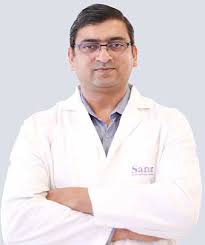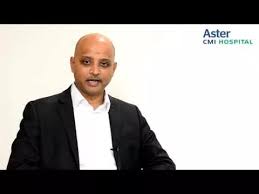Liver Transplant IN INDIA
A liver transplant replaces a diseased liver with a healthy one, either from a deceased donor or a living donor. Living donors, often family members or compatible individuals, can donate a portion of their liver, as the organ uniquely regenerates, allowing both donor and recipient livers to grow back to normal size within weeks.
In addition to its medical and emotional significance, the financial aspect of liver transplantation is an important consideration. The cost of a liver transplant in India can vary widely depending on factors such as the country, hospital, surgeon’s expertise, and the patient’s medical condition. Expenses typically include pre-transplant evaluations, surgical fees, post-operative care, medications, and follow-up consultations. Understanding these costs in detail is crucial for patients and their families as they plan for this life-changing journey. This blog will explore liver transplantation and provide a detailed analysis of associated costs worldwide
What are the different types of liver transplants in India?
There are various types of transplants tailored to specific needs:
Living Donors: In this approach, a healthy individual donates a portion of their liver, which regenerates over time in both the donor and recipient. It allows timely transplantation and is often performed when a deceased donor organ is unavailable.
Pediatric Liver Transplant: Designed for children with congenital liver conditions or severe liver failure, this procedure often uses a portion of an adult liver.
Multiorgan Transplant: In cases where liver disease coexists with failure of other organs, such as kidneys, a combined transplant addresses multiple conditions simultaneously, offering a comprehensive treatment.
Adult Liver Transplant: This is the most common type, involving either a full liver from a deceased donor or a liver segment from a living donor.
Deceased Donor Transplant: Performed using a liver from a recently deceased individual, this procedure depends on organ availability and matching, making it crucial in cases of urgent need.
Each type of liver transplant plays a vital role in addressing diverse patient needs, enhancing survival and quality of life.
Orthotopic liver Vs Heterotopic Liver Transplantation
| Orthotopic Transplantation | Heterotopic Transplantation |
| The diseased liver is completely removed and replaced with a donor liver. | The donor liver is transplanted in addition to the existing diseased liver. |
| Commonly used for end-stage liver diseases or acute liver failure. | Used when the native liver retains partial function or recovery potential. |
| Donor liver is placed in the original liver’s anatomical position. | Donor liver is placed in a different location, often the right lower abdomen. |
| The transplanted liver takes over all liver functions. | Both native and transplanted livers share or alternate liver functions. |
| More complex due to the complete removal and reattachment of liver structures. | Less complex as the native liver is not removed. |
| Established as the standard approach with predictable outcomes. | Less common outcomes depend on the native liver’s recovery and donor liver function. |
| Chronic liver disease, acute liver failure, liver tumors. | Metabolic liver diseases or when a temporary liver assist is needed. |
When do I need a liver transplant?
When the liver ceases to work effectively, a transplant might become necessary.
Other conditions that may necessitate a liver transplant include:
- Acute Hepatic Necrosis: Liver tissue death caused by acute infections, toxic substances, drug reactions.
- Biliary Atresia: A rare congenital disorder affecting the liver and bile ducts in newborns.
- Viral Hepatitis: Chronic infections such as hepatitis B or C.
- Alcoholic Hepatitis: Liver damage resulting from prolonged alcohol consumption.
- NAFLD/NASH: Nonalcoholic fatty liver disease and its inflammatory variant, nonalcoholic steatohepatitis.
- Bile Duct Cancer: In specific cases, transplant is an option.
- Metabolic Disorders: Conditions disrupting liver-related cellular chemical activity.
- Primary Liver Cancer: Tumors originating in the liver, often linked to cirrhosis.
- Autoimmune Hepatitis: Inflammation caused by the immune system attacking liver cells.
A liver transplant can offer a new lease on life for those with these serious conditions.
How long can you survive without liver transplant?
Survival without a liver transplant after chronic liver disease, liver carcinoma, viral hepatitis, and alcoholic liver disease depends on several factors:
- Stage of Disease: Advanced liver conditions such as end-stage liver failure or liver cancer (hepatocellular carcinoma) drastically reduce survival, often to months without intervention.
- Underlying Cause: Viral hepatitis and alcoholic liver disease can lead to cirrhosis, which increases complications.
- Complications: Ascites, jaundice, and infections indicate decompensated liver disease, with median survival as low as 1–2 years.
- Treatment and Care: Supportive care, abstaining from alcohol, and antiviral therapies may prolong survival in earlier stages.
- General Health: Age, nutritional status, and comorbid conditions significantly influence outcomes.
For liver carcinoma, without curative treatments like transplant, survival averages 6–12 months. Early diagnosis and effective management can improve quality of life but emphasize the critical need for timely transplantation.
Why is India the best for organ transplantation?
India has emerged as a leading destination for liver transplants, offering a blend of cost-effectiveness and advanced medical expertise. The country provides high-quality transplant services at a fraction of the cost compared to Western countries, making it accessible to a broader range of patients. Policies promoting medical tourism, streamlined healthcare processes, and the availability of skilled surgeons further enhance its appeal. Additionally, India’s hospitals are equipped with state-of-the-art facilities and maintain international standards of care. With favorable outcomes, shorter wait times, and affordable treatments, India stands out as a preferred choice for liver transplant procedures globally.
What are the factors that influence the cost transplantation in India?
- Type of Transplant: Complex procedures like liver or heart transplants are costlier than kidney transplants due to higher surgical and resource demands.
- Hospital: Private hospitals with advanced infrastructure and premium facilities charge more than government institutions.
- Medical Expertise: Renowned surgeons and skilled teams with high success rates often command higher fees.
- Pre- and Post-Care: Diagnostic tests, donor evaluations, ICU stays, medications, and follow-up care significantly add to the cost.
- Administrative Costs: Legal documentation, donor screening, and regulatory compliance also contribute to the total expense.
What is the cost of liver transplantation in India?
Cost of various types of liver transplants varies due to multiple factors affecting the liver transplant in India. Here is a brief analysis on the cost of liver transplantation.
| Type of liver transplant | Approximate cost | Details |
| Living Donor Liver Transplant | 18–30 lakhs | Includes surgery for both donor and recipient; highly skilled procedure. |
| Deceased Donor Liver Transplant | 20–35 lakhs | Involves organ retrieval from a brain-dead donor and complex coordination. |
| Pediatric Liver Transplant | 15–25 lakhs | Specialized procedure for children, using smaller liver segments. |
| Split Liver Transplant | 20–32 lakhs | A single donor liver split for two recipients, requiring advanced expertise. |
| Multiorgan Transplant | 30–50 lakhs | Combined liver and other organ transplants, depending on complexity. |
| Emergency Liver Transplant | 25–40 lakhs | Performed on an urgent basis, often with additional logistical and medical costs. |
Why choose us?
- World-Class Healthcare Access: Experience premium medical care in India through our specialized medical tourism services, designed to cater to international patients.
- End-to-End Assistance: Receive comprehensive support throughout your healthcare journey, including visa applications, travel arrangements, and hospital selection.
- Expert Doctor and Hospital Selection: Benefit from our expertise in identifying the best doctors, hospitals, and treatment plans tailored to your needs.
- Affordability with Quality Care: Enjoy world-class healthcare solutions at a fraction of the cost, without compromising on quality.
- Personalized Solutions: We design treatment and logistical plans that align with your medical and financial requirements.
- Seamless Logistics Management: Focus on your health while we handle all aspects of your travel, stay, and hospital coordination.
Comfortable Recovery: Our dedicated team ensures an efficient, stress-free, and comfortable healthcare journey from start to finish.
Common Symptoms of Liver Cancer
Early signs of liver cancer can be vague, but recognizing them is key to prompt treatment. Patients may experience:
- Pain or swelling in the abdomen.
- Unexplained weight loss.
- Jaundice (yellowing of the skin and eyes).
- Nausea or loss of appetite.
- Fatigue and general weakness.
These symptoms often mimic other illnesses, which is why regular health check-ups and diagnostic tests are essential.
What are the preparations done before the liver transplant?
Once End-Stage Liver Disease (ESLD) is diagnosed, patients undergo a thorough evaluation to confirm the diagnosis, identify the cause, assess disease severity, and evaluate the impact on other organs like the heart, lungs, and kidneys. The process also checks for liver tumors and determines the feasibility and risks of surgery, considering factors like previous abdominal surgeries or infections.
This outpatient evaluation typically takes 7–10 days and involves tests, scans, and specialist consultations. Patients should relax between tests and follow instructions carefully. A pre-transplant coordinator schedules tests and adjusts the plan based on results. Hospital-based evaluations may be necessary for sicker patients or those with co-existing conditions like cardiac disease, hypertension, or diabetes, which must be treated before transplantation.
What is post care for patients undergoing liver transplant?
After surgery, you’ll be moved to the recovery room for a few hours before being transferred to the intensive care unit (ICU), where you will be closely monitored for several days. In the ICU, you’ll be connected to monitors to track your heartbeat, blood pressure, breathing rate, oxygen level, and other vital signs. Hospital stays usually last 1 to 2 weeks or longer, depending on your recovery progress.
Once stable, your breathing and stomach tubes will be removed, and you’ll gradually transition to liquids and solid foods as tolerated. Anti Rejection medications will be adjusted to ensure proper dosing and effectiveness. When ready, you’ll move from the ICU to a private room, where you’ll increase activity levels and mobility.
At home, follow specific instructions to keep the surgical area clean and avoid driving or strenuous activity until cleared by your healthcare provider. Report any signs of infection, rejection, or complications, such as fever, jaundice, increased pain, redness, or vomiting. Your transplant team will guide you on self-care to ensure a smooth recovery.
Top Liver Transplant Doctors in India
The right doctor to consult for a Liver Transplant case.
Dr. Subhash Gupta
Year of experience: 39+ Years of Experience
Dr. Abhideep Chaudhary
Year of experience: 24+ Years of Experience
Dr. Vivek Vij
Year of experience: 20
Senior Consultant at Fortis Escorts Heart Institute, Delhi
Dr. A. S. Soin
Year of experience: 30 Years of Experience
Chairman at Medanta The Medicity
Dr. Ankur Garg
Year of experience: 16+Years of Experience
Dr. Arvinder Singh Soin
Year of experience: 37+Years of Experience
Dr. Shailesh Lalwani
Year of experience: 23
HOD & Senior Consultant at Manipal Hospital Dwarka, Delhi
Prof. Dr. Mohamed Rela
Year of experience: 31+ Years of Experience
Looking For The Best Doctor & Hospital?
Fill up the form and get assured assitance within 24 hrs!
What is the success rate of liver transplant in India?
The success rate of liver transplants in India is remarkably high, with over 85–90% of patients surviving the first year post-transplant and a 5-year survival rate of approximately 70–75%. This impressive outcome is attributed to several factors, including advancements in medical technology, skilled transplant teams, and adherence to global standards of care.
India is home to some of the world’s leading transplant centers, equipped with state-of-the-art facilities and staffed by highly experienced surgeons and medical professionals. Comprehensive pre- and post-operative care protocols play a vital role in improving outcomes by reducing complications and ensuring patient recovery.
Cost-effectiveness also contributes to India’s success in liver transplantation, as it makes high-quality care accessible to a larger population. Furthermore, the increasing awareness of organ donation and supportive government policies have enhanced the availability of donor organs.
FAQs
- What should I expect after a liver transplant?
After a liver transplant, you can expect a recovery process that includes regular medical follow-ups and taking immunosuppressive medications to prevent organ rejection. Initial recovery involves hospital stay and monitoring for complications like infection or rejection. Over time, many patients regain strength and enjoy improved quality of life. A healthy diet, avoiding alcohol, and adhering to medical advice are vital for long-term success. Emotional and physical adjustments are part of the journey.
- What are the chances of recurrence of disease after liver transplantation?
The chances of disease recurrence after liver transplantation depend on the underlying condition. Some diseases, like hepatitis C or autoimmune hepatitis, have higher recurrence rates, while others, like acute liver failure or primary tumors, are less likely to recur. Recurrence can vary based on factors such as disease type, treatment compliance, and post-transplant care. Close monitoring and prompt management are crucial to minimize recurrence and ensure long-term graft and patient survival.
- How many follow ups do I need after the surgery?
After liver transplant surgery, follow-up frequency is highest in the first year. Initially, you may need weekly or biweekly visits for monitoring, including blood tests and medication adjustments. Over time, follow-ups decrease to monthly and eventually to annual visits, depending on your health and transplant stability. Regular check-ups are essential for detecting complications, assessing liver function, and ensuring medication effectiveness to maintain the success of the transplant and your overall health.
- What are the complications post transplantation?
Complications after liver transplantation can include organ rejection, where the immune system attacks the transplanted liver, and infections due to immunosuppressive medications. Other risks involve bile duct complications, such as leaks or strictures, blood clots, and bleeding. Long-term issues may include recurrence of the original liver disease, kidney damage from medications, or metabolic disorders. Regular monitoring, timely medical care, and adherence to prescribed treatments are crucial to manage and minimize these complications.
- What are the signs and symptoms to look for after surgery?
After liver transplant surgery, watch for signs of complications such as fever, jaundice (yellowing of the skin or eyes), abdominal pain, swelling, or tenderness, dark urine, pale stools, or fatigue. Other symptoms include signs of infection like redness or drainage at the incision site. Changes in appetite, unexplained weight gain, or swelling in the legs may also occur. Promptly reporting these symptoms to your healthcare provider is essential for timely intervention.
Get FREE Evaluation
Treatment plan and quote within within 24 hrs!
Let us help you
Get your personalized Estimate Now
Top Doctors & Surgeons in India
Best Hospitals in India
Best Treatments in India
Indian Medical Visa From
Copyright © 2025 Al Afiya Medi Tour | All Rights Reserved.






































